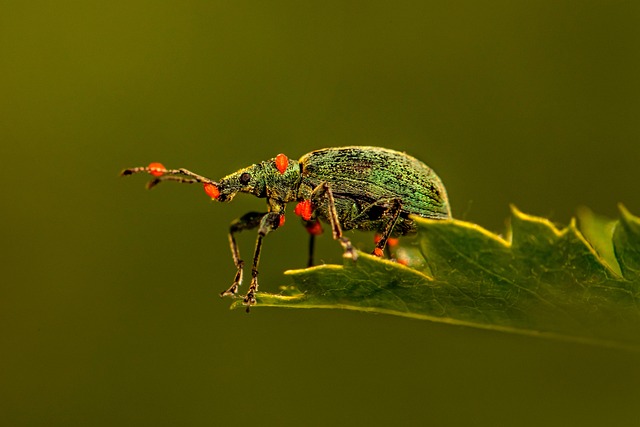Green Pest Management Services offers Eco-Friendly Pest Control that prioritizes environmental safety over toxic chemicals, leveraging natural solutions like plant repellents, beneficial insects, and humane traps. This holistic approach conserves biodiversity, promotes ecological balance, and ensures safer living environments for both clients and the ecosystem. By adopting Eco-Friendly Pest Control, businesses can create healthier work spaces, comply with regulations, appeal to eco-conscious consumers, and contribute to a sustainable future. Innovations in green pest management include advanced technologies, biologically-based pesticides, beneficial insects, and data analytics driven by AI, promising a healthier balance between human needs and ecological preservation.
“Discover the transformative power of green pest management services, a holistic approach to pest control that prioritizes environmental safety. This comprehensive guide explores eco-friendly solutions, from understanding the principles of integrated pest management (IPM) to implementing organic strategies for common pests.
Learn how non-toxic methods and natural predators offer safe alternatives, catering to both homeowners seeking green practices and commercial spaces aiming for eco-consciousness. Uncover future trends in sustainable pest control, ensuring a healthier environment while effectively managing pests.”
Understanding Green Pest Management: A Holistic Approach
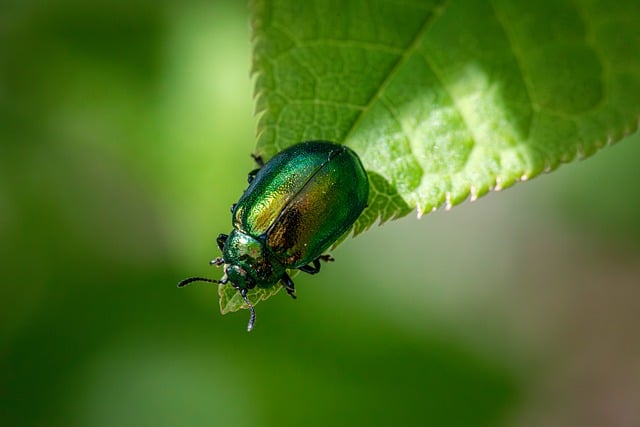
Green Pest Management Services takes a holistic approach to pest control, prioritizing eco-friendly methods over traditional, chemical-heavy solutions. This method recognizes that pests are part of a complex ecosystem and aims to maintain balance while ensuring a healthy living environment. Instead of relying on toxic chemicals, green pest management utilizes natural repellents, biological controls, and integrated pest management strategies to minimize the impact on non-target organisms and the environment.
By embracing eco-friendly pest control, these services not only protect homes and businesses from pests but also contribute to biodiversity conservation. This approach encourages the use of plants that naturally repel pests, beneficial insects that feed on harmful ones, and traps designed to capture pests humanely. Such practices promote a sustainable and safe living space, benefiting both clients and the surrounding ecosystem.
Benefits of Eco-Friendly Pest Control for the Environment
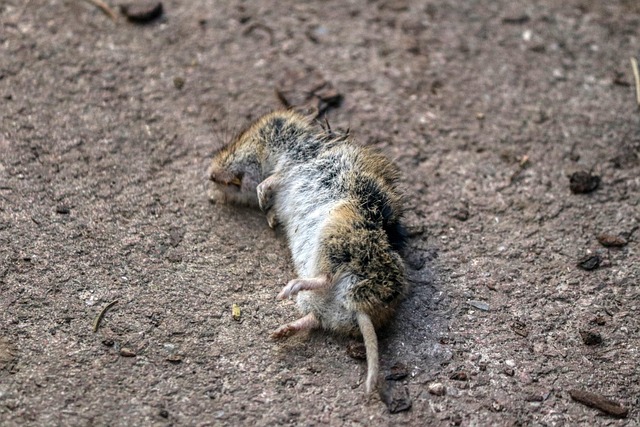
The traditional pest control methods often rely on toxic chemicals that can have detrimental effects on the environment. These chemicals can contaminate soil, water bodies, and air, causing harm to non-target organisms such as beneficial insects, birds, and aquatic life. They also pose risks to human health, especially when not used properly. Eco-friendly pest control, on the other hand, offers a sustainable approach by minimising these negative impacts. By utilising natural substances, biological controls, and innovative technologies, it maintains a healthy balance in ecosystems while effectively managing pests.
One of the key benefits is its preservation of biodiversity. Non-toxic methods ensure that beneficial insects, birds, and wildlife can thrive without being affected by harmful chemicals. This promotes a diverse and resilient ecosystem where natural predators can keep pest populations under control. Moreover, eco-friendly practices reduce water pollution and soil degradation, ensuring cleaner environments for both nature and humans.
Safe and Effective: Non-Toxic Methods in Use

Green Pest Management Services prioritize safety and effectiveness, employing non-toxic methods that are kind to both people and the environment. Unlike traditional pest control, which often relies on harmful chemicals, eco-friendly pest control options use natural substances or minimal amounts of biodegradable products. These strategies not only minimize health risks but also protect local ecosystems and preserve biodiversity.
By adopting non-toxic methods, Green Pest Management Services ensure a healthier living space for their clients while contributing to a sustainable future. This approach is ideal for homeowners, businesses, and organizations that value eco-conscious practices. With careful selection and application, these non-toxic solutions prove just as potent in pest prevention and control, offering a safer alternative to conventional methods.
Integrated Pest Management (IPM): Strategies and Techniques
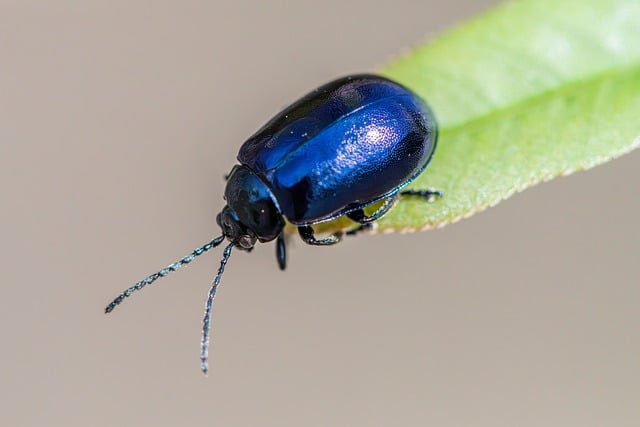
Integrated Pest Management (IPM) is an eco-friendly pest control strategy that focuses on long-term prevention and minimal environmental impact. It involves a combination of biological, cultural, mechanical, and chemical methods to manage pests effectively. By integrating these diverse techniques, IPM aims to reduce reliance on synthetic pesticides, promoting a healthier and more sustainable environment.
Key strategies in IPM include encouraging natural predators and parasites that feed on pests, using plant varieties resistant to common pests, implementing proper sanitation practices, and employing physical barriers or traps. Additionally, targeted applications of minimal toxic chemicals are used only when necessary, ensuring that treatments are specific and limited to the areas requiring them. This approach not only protects non-target organisms and the environment but also helps preserve the ecosystem’s natural balance.
Common Pests and Their Organic Solutions

Pest problems are a common concern for many homeowners and businesses, but traditional pest control methods often rely on harmful chemicals that can have adverse effects on both the environment and human health. Green Pest Management Services offer an eco-friendly alternative by focusing on organic solutions to keep pests at bay.
Common pests like ants, cockroaches, and termites can be managed naturally with targeted organic compounds derived from plants. For instance, neem oil, a natural insecticidal compound, is effective against various insects including ants and roaches. Essential oils from citrus fruits or peppermint can act as natural repellents to deter pests without leaving toxic residues. In the case of termites, using beneficial nematodes—parasitic roundworms—can help control their population by infecting and killing the termites. These organic solutions not only ensure a healthier environment but also contribute to long-term pest prevention.
The Role of Natural Predators and Biological Controls

In the realm of green pest management, natural predators and biological controls play a pivotal role in fostering an eco-friendly approach to pest control. These organic methods involve harnessing the power of nature’s own pest control mechanisms. For instance, introducing beneficial insects like ladybugs or spiders can effectively combat harmful pests without resorting to harsh chemicals. Each species has unique hunting strategies; ladybugs, for their part, feed on aphids, while spiders prey on a variety of small insects.
By encouraging these natural predators in your environment, you create a balanced ecosystem that minimizes pest populations. This eco-friendly pest control approach not only reduces the risk of environmental contamination but also promotes biodiversity. It’s a harmonious solution that respects both nature and the need for pest management, making it an appealing alternative to traditional, chemical-heavy methods.
Homeowners' Guide to Implementing Green Pest Practices
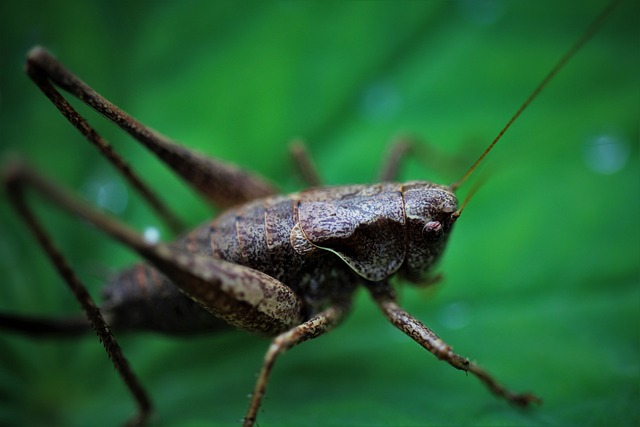
Implementing green pest management practices at home is an excellent way to protect your property and contribute to a healthier environment. Start by identifying common pests in your area and understanding their behavior. Eco-friendly pest control methods often involve using natural predators, beneficial insects, and organic pesticides to manage infestations. For example, introducing ladybugs or lacewings can help control aphid populations without harmful chemicals.
Regular inspections and maintenance are key to successful green pest control. Keep your home clean and free of clutter to reduce potential hiding places for pests. Seal entry points like cracks and gaps in walls or windows with caulk to prevent invasions. Additionally, consider planting pest-repelling plants around your property, such as mint, basil, or marigolds, which can naturally deter certain insects. By adopting these practices, homeowners can effectively manage pests while minimizing the use of synthetic chemicals.
Commercial Spaces and Eco-Conscious Pest Management
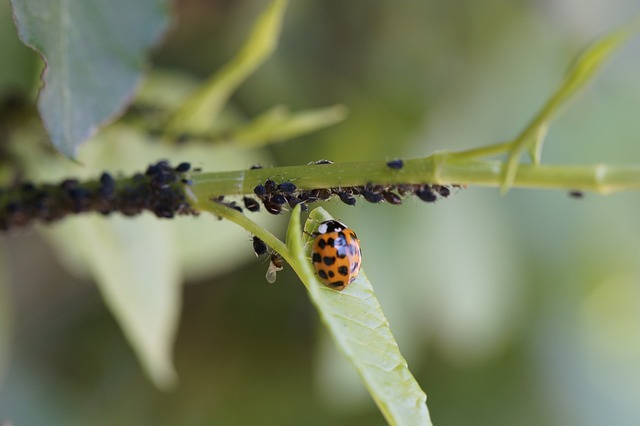
In today’s digital era, commercial spaces are more than just buildings; they’re vibrant hubs that contribute to the economy and community. As such, it’s crucial to maintain them in optimal condition, which includes addressing pest management. Eco-conscious business owners are increasingly recognizing the benefits of green pest control methods that prioritize safety, sustainability, and environmental preservation.
By opting for eco-friendly pest control, commercial spaces can mitigate risks associated with traditional chemical treatments while fostering a healthier workplace environment. These methods leverage natural predators, biological agents, and non-toxic solutions to effectively manage pests. This approach not only aligns with the growing trend of sustainability but also ensures compliance with environmental regulations. Moreover, it appeals to eco-conscious customers and tenants who value businesses that minimize their ecological footprint.
Future Trends: Innovations in Sustainable Pest Control
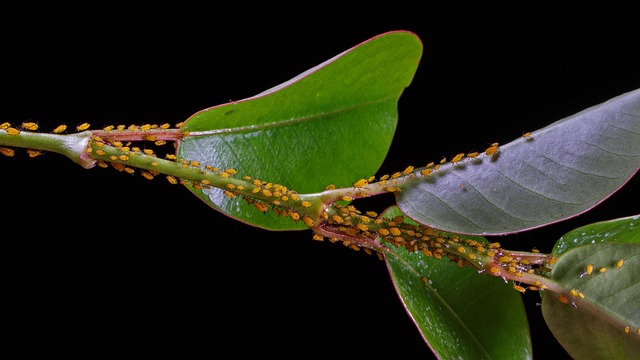
The future of pest management is bright and green. As awareness about environmental impact grows, so does the demand for eco-friendly alternatives to traditional pest control methods. Innovations in sustainable pest control are leading the way with advanced technologies and natural solutions that not only minimize harm to the environment but also effectively manage pests. From smart sensors that detect pest activity early on to biologically-based pesticides derived from plants, these developments are reshaping the industry.
Biocontrol agents, such as beneficial insects and fungi, are gaining popularity for their precision and minimal environmental disruption. Additionally, the integration of data analytics and AI is optimizing pest management practices by providing predictive models and targeted interventions. These future trends in eco-friendly pest control promise a healthier balance between human needs and ecological preservation, ensuring that we can enjoy pest-free environments without compromising the well-being of our planet.
